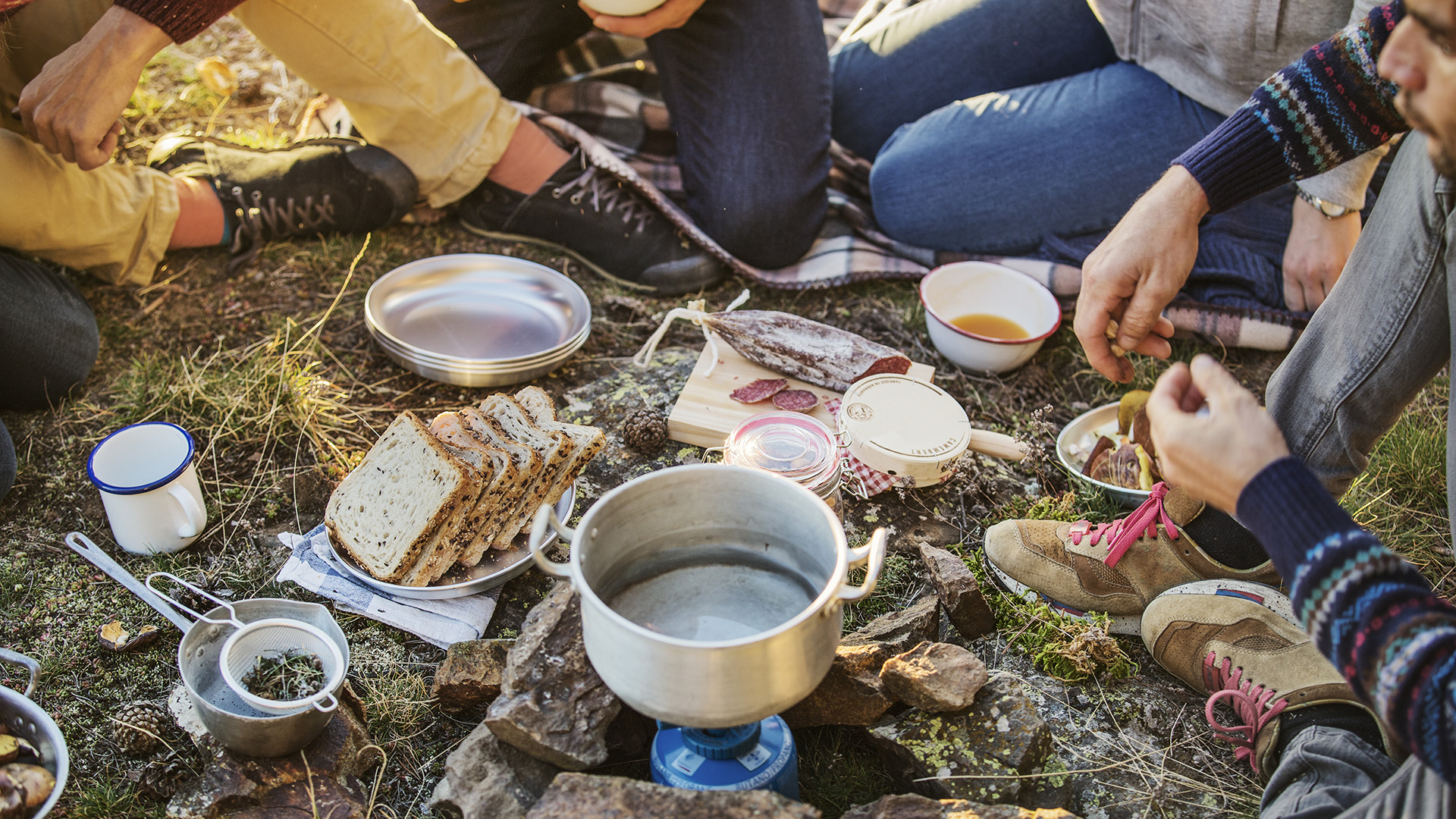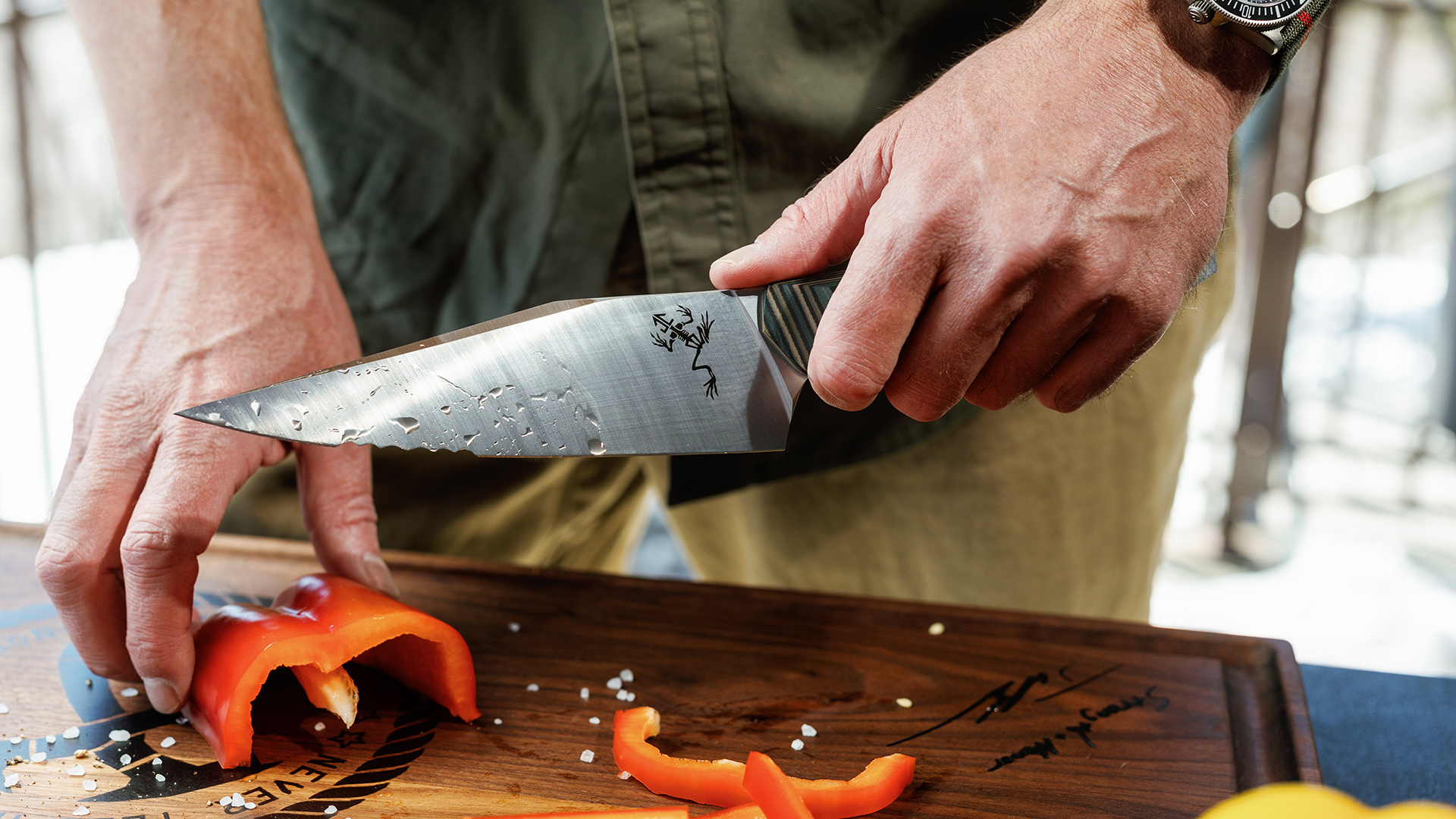
It's the beginning of camping season, so understandably, more and more people are looking into the best foods to take camping. It's also prime time to brush up on your camp cooking skills so you aren't all stuck eating pot noodles for a week while roaming the countryside.
"Camping is more popular than ever, with searches increasing by 15% since the start of 2024," Natalie Byrne, author and camping enthusiast at GO Outdoors, says, "From festival camping to campsite camping, bringing the right foods will make your experience much more enjoyable."
Although it's not impossible to cook up a feast while camping, it's more likely people would opt for foods that are easy to carry, store and eat; after all, many of us look for the warm embrace of the great outdoors to get away from life's everyday chores, not to do them yet more under the blanket of the night sky.
Cooking up a storm
Your best option is to pack non-perishable food items that don't require refrigeration or can withstand being stored in a camping cooler with ice packs. Dried fruits, jerky, nuts, and trail mix provide quick energy boosts and are lightweight to carry. Sealed packages are also excellent options for camping meals.
Fresh fruits and vegetables that have a longer shelf life, such as apples, oranges, carrots, and bell peppers, can add essential vitamins and nutrients to your camping diet. These items are easy to pack and can be enjoyed as healthy snacks or incorporated into simple campfire recipes.
Canned goods, such as beans, tuna, and soups, are also convenient choices for camping meals. They offer versatility and can be easily heated over a campfire or portable stove.
Additionally, pre-packaged meals like dehydrated backpacking meals or freeze-dried dinners are lightweight, require minimal preparation, and come in a variety of flavours to suit different preferences.
If you prefer fresh food over the freeze-dried variety, consider bringing ingredients for easy-to-make meals like sandwiches, wraps, or quesadillas. Pack tortillas, cheese, deli meats, and condiments for assembling quick and satisfying meals without the need for extensive cooking equipment.

If you take raw meat with you, keep it separate from other items to prevent cross-contamination and potential foodborne illness. The same goes for handling raw meat while on the campsite, especially considering the lack of washing-up facilities on location.
Consider prepping meals and snacks at home before your trip, such as chopping vegetables, marinating meats, and pre-cooking rice or pasta. This will save time and effort when you're out in nature, allowing you to enjoy your camping experience to the fullest.
Bring along the necessary cooking equipment, such as a camping stove, portable grill, or Dutch oven, along with fuel, matches, or a lighter for cooking. Practice proper food safety by washing hands before handling food, using separate cutting boards for raw meats and produce, and cooking food to the appropriate temperature.
Store perishable items in a cooler with plenty of ice packs to maintain a safe temperature and prevent spoilage. The best YETI coolers are famous for keeping food fresh for longer. Keep dry goods in sealed containers to protect them from pests and moisture.
Consider using lightweight utensils, pots, and pans for cooking, and dispose of waste properly by following Leave No Trace principles. With proper planning and preparation, you can enjoy delicious and satisfying meals while camping in the great outdoors.
Lastly, don't forget to bring plenty of water and beverages to stay hydrated during your camping trip. Consider bringing a portable water filter or purification tablets if you plan to drink from natural water sources. And for a cosy camping treat, don't overlook the classic s'mores ingredients: graham crackers, marshmallows, and chocolate bars for a sweet and satisfying campfire dessert.







